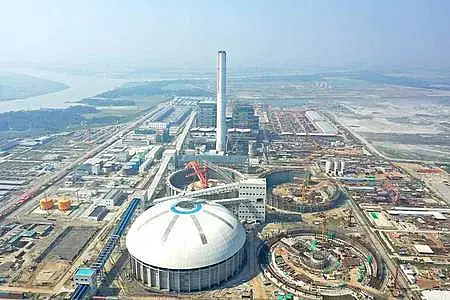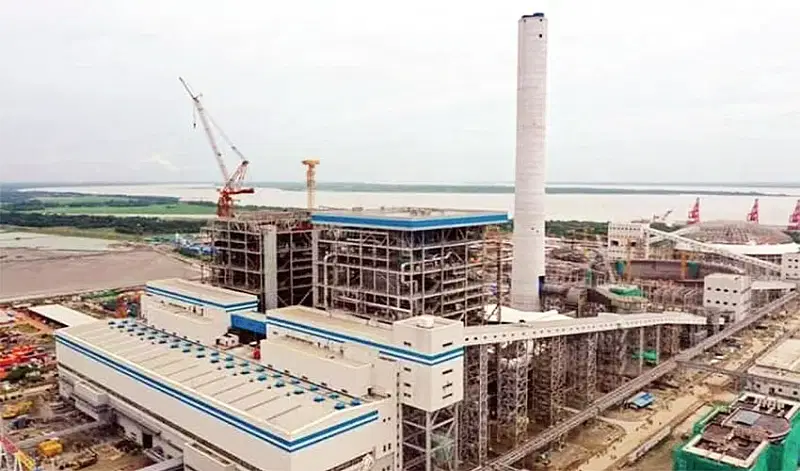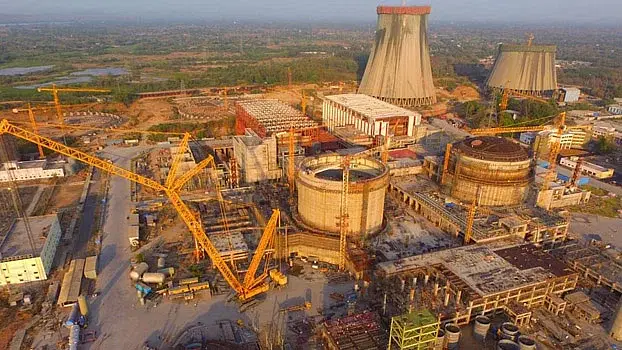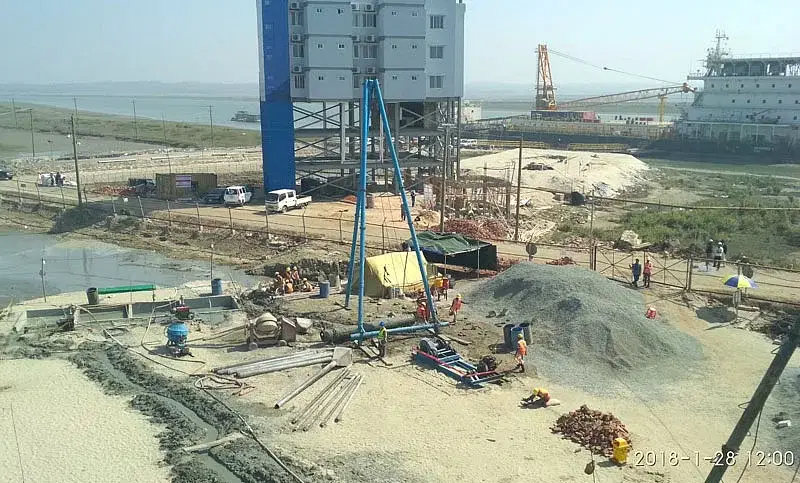
We have studied in economics that foreign companies export new technologies and capital investment while while facilitating building of new infrastructures and creation of employment to under-developed countries. The new development inspires local organisations to increase competence.
But the reality is that many countries inheriting strong competence and necessary infrastructures are losing strength intentionally due to the foreign interventions.
For example, we have heard that foreign intervention could protect our jute sector from being loss-making. Similarly, a huge amount of foreign credit has been injected into the country’s power and energy industries to make the already efficient sector more competent. Such investment is a complete wastage. Rather than ensuring good management in the local industries, potential sectors of the country are being handed over to the foreign countries, using the excuse, “We are unable, incompetent, corrupt.”
With the right patronage by the respective governments, the Oil and Natural Gas Corporation of India and the Petronas of Malaysia have proved their efficiency even in deep-sea exploration in one decade of experimenting.
For decades, the Bangladesh Petroleum Exploration and Production Company (Bapex) has been discovering onshore gas fields. But the fields are leased out to some foreign companies, allowing wastage of exchequer.
The government is taking services from the Russian Gazprom with an investment of Tk1.55 billion (155 crores), though Bapex could provide this investing Tk800 million (80 crores). This refers to multiplication of the exploration costs by leasing the invaluable national resources out to foreigners.
Is this right to leave the local explorers idle despite their competency while handing over the strategically important sectors to foreign companies? When we are celebrating the golden jubilee of national independence, should we show excuse that we are dishonest, incompetent and corrupt?

Incredible cost of development: huge wastage of exchequer
In 2017, the World Bank estimated that the cost of per kilometre highways construction is USD2.5 million to USD11.9 million (1 million=10 lakh) in Bangladesh, which is the highest in the world. In contrast, the cost ranges from USD1 million to USD1.5 million in India and China. That means construction of roads in Bangladesh is four to five per cent costlier than that of India and China. This is to be noted that foreign construction firms are building bridges, terminals, power plants and railway, besides highways, in Bangladesh.
The culture of good governance and the practice of transparency as well as accountability were supposed to be created with foreign investment. Is there any progress here even to a minimal extent?
The Japan International Cooperation Agency is funding the Matarbari coal-fired power project while two Japanese corporations Sumitomo and Toshiba are building the mega plant. The project value has been estimated at Tk360 billion (36,000 crores). That means the project would be the most expensive coal-fired power plant in the world (see: Why should Matarbari project cost USD4.4b?, The Daily Star, 2014). According to a news report by Prothom Alo, the under-construction Payra Deep Sea Port would be another global example of a highly expensive project. The initial project cost was estimated at Tk15.4 billion (when USD1 =Tk84). The project is being developed by a Chinese construction firm. The Rooppur Nuclear Power Plant project is underway with an estimated cost of Tk11.3 billion. Russian Rosatom State Atomic Energy Corporation is building the plant. This would be one of the most expensive nuclear power plant projects in the world (a similar Akkuyu Nuclear Power Plant in Turkey was built spending less than Tk200 million than that of Rooppur). What a country is this? Whatever construction is being implemented here–whether road, bridge, coal-fired power plant or deep sea port– it is turned into the most expensive project in the world.
Implementation of the Matarbari plant has created many questions. The project cost must not exceed USD2.5 billion. How has it stood at USD4.4 billion? (see: Matarbari Power doesn’t bother to disclose Tk10,000cr cost hike; The Business Standard, 2019)
Are we building the top polluting plant with this incredible investment? A 2019 report by Greenpeace International reveals that Japan will not allow implementation of such a polluting plant the Sumitomo has been developing in Bangladesh (see Japan’s double standard, Greenpeace, 2019).
When we talk about the incredible expenditure in the Payra port, the reply as justification would come citing lack of navigability of the river and the high cost of dredging the riverbed. Did not they conduct any feasibility study before implementing the project?
German geologist Hermann Kudras has been warning from the beginning that the project site is not suitable for building such a port (see: Building Payra Deep Sea Harbor–A Challenge of Nature, 2017). That means that we have no ‘cost and benefit analysis’ term in our dictionary.

Raise the question. Construction of at least three coal terminals at Payra, Matarbari and Maheshkhali are underway. What is the benefit of excessive terminals in Bangladesh? How much coal will Bangladesh need? When many countries, endorsing smart energy policy, have announced their phasing out from coal-based industries by the next 20 years, Bangladesh is facilitating coal-centric terminals, jetties and power plants worth Tk32 billion in total (see: Choked by coal: The carbon catastrophe in Bangladesh, Market Forces, 2019).
The fact is that Bangladesh will need a continuous supply of imported coal to feed the hugely expensive power plants. The country has huge potentials for wind energy (see: Accessing the wind energy potential in Bangladesh, USAID, 2020) and the generation cost of wind power is being reduced significantly compared to the coal-based examples. But Bangladesh will need to import coal from Indonesia spending Tk0.16 billion extra money (Source: Market Forces, 2019). Despite alternatives, how did Bangladesh become trapped in such extra expense? Bangladesh is implementing a series of coal-fired plants with a huge amount of foreign credits when investment in solar and wind power is getting popularity across the world.
Foreign company versus national competence: Losers and beneficiaries
A foreign company was hired to draft a long-term master plan for Bangladesh’s power and energy sector. The Japanese Tepco that has recommended the suitable sites for the new coal-fired plants, coal terminals and LNG terminals and others, is now appointed as the consultancy firm for the construction works of the mega projects under the master plan. All the feasibility tests and environmental assessments are done unlateraly. Hilarious! Is not the energy ministry familiar with the term ‘conflict of interest’? The important thing is that the master plan devised by the Japanese consultation firm does not facilitate national competence building. It makes Bangladesh’s energy sector dependent on imported LNG as well as turns the country into a waste dumping zone for the nuclear and coal projects.
Even after 50 years of Bangladesh’s independence, construction of roads, culverts and power plants requires consultancy from Chinese or Korean firms. Is the inefficiency evolved intentionally? How many foreign constructors work at the grassroots after approval of the mega projects? In reality, the foreign firms get contract for the projects while local engineers sub-contract the job at the cheapest price. Then what is the logic of the ‘expensive deals’? It is not possible to balance these massive accounts by using bamboos instead of rods as construction material. So why is all this being done?

We all know that every foreign company has local agents in Bangladesh. The agents grab a big amount of commission money. The question is that who are the local agents and to whom are they loyal? Why does the next generation have to pay the installments of the foreign credits eaten up by the loyal ‘men’ from the expensive mega projects? This system discourages the local expertise while boosting foreign intervention. Moreover, it fails to control the ever increasing project expenditure due to the influence of local agents.
Foreign investment, corruption and development under question
Broadly it can be said that foreign investment either could contribute to ‘development’ or not. It depends fully on the practice of good governance, accountability and policy transparency in the public offices. The concept of foreign investment-driven development did not work in Nigeria, Gabon and Angola. The three countries are among the poorest in the world.
The people glorifying foreign interferences as the catalyst of anti-corruption practices, profitable industries and lots of employment might forget that the numerous foreign companies, constructors, experts and engineers working in Bangladesh have played any minimal role to alleviate corruption, commission business, amplification of project budget and unemployment. That means, all the related persons either local or foreigners are the beneficiaries of the corruption-friendly system. And the syndicate is active in weakening national competence.
Conclusion: costly development and state-run repression
A continuation of repressive governance is required for sustaining the corrupt system. The beneficiaries of the ‘costly development’ will not allow improvement of the volatile condition that supports undisturbed looting of public money in the name of development projects.
The country’s economy is now controlled by mafias. Vested interest groups are dominating the state and government. So why will they not send their critics to prison? We see critics of the government’s wrongdoings get punished in different way under repressive laws. During this 50th anniversary of independence, the magnitude of such repression is growing in order to protect the ‘commission business’.
*This report appeared in Prothom Alo print and online edition, and has been rewritten in English by Sadiqur Rahman.









